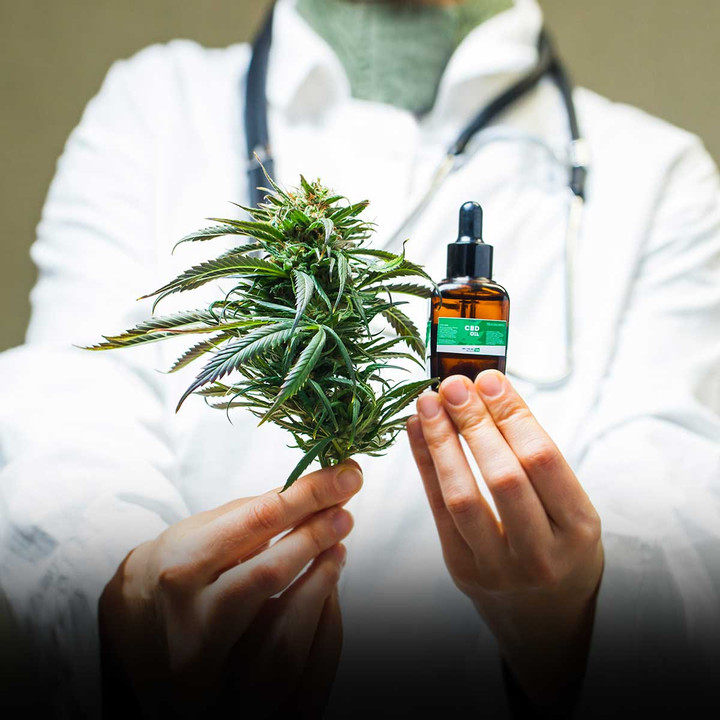Social Impact of Cannabis Awareness
Marijuana Awareness Month takes place every February and aims to spread knowledge about the negative effects of marijuana use. Several surveys carried out in the U.S. reveal that millions of people use marijuana, making it the most widely used illicit drug in the country. Marijuana use is on the rise in the U.S., causing a rise in addiction too. The popularity of the drug is a result of the perceived myth that the drug is harmless because of its recent legalization in some states.
Cannabis is indigenous to Central Asia and the Indian subcontinent. Its uses for fabric and rope date back as far as the Neolithic age in China and Japan. The oldest archeological evidence for the burning of cannabis was found in Romanian kurgans dating back as far as 3500 B.C. It is posited that marijuana was first used in ritual ceremonies by the ancient tribes living in the Pontic-Caspian region during the Chalcolithic period, therefore eventually spreading throughout western Eurasia during the Indo-European migrations. Research also suggests that the ancient Indo-Iranian drug ‘soma,’ sometimes contained cannabis. This research is based on the discovery of a cannabis-carrying basin in an ancient Turkmenistan shrine.
The Spaniards introduced cannabis to the New World from 1530 to 1545. After a tour of North Africa and the Middle East from 1836–1840, a French physician named Jacques-Joseph Moreau wrote about the psychological effects of cannabis use. Then in 1842, Irish physician William Brooke O’Shaughnessy, having studied the drug while working as a medical officer in Bengal with the East India Company, brought some cannabis with him upon his return to Britain. This sparked renewed interest in cannabis in the West.
At the start of the 19th century, cannabis was criminalized in most countries. In 1840, the colonial government of Mauritius banned cannabis because of concerns regarding its effect on Indian workers. In the United States, the first restrictions on the sale of cannabis came in 1906 in Washington, D.C. Canada criminalized cannabis through The Opium and Narcotic Drug Act of 1923, at a time when there were not yet any reports of the use of the drug in the country. However, its use was eventually legalized for recreational and medicinal purposes in 2018.
MARIJUANA AWARENESS MONTH SHORTENED TIMELINE
Cannabis is used for domestic purposes.
Cannabis is introduced to the New World by the Spaniards.
The United States first imposes restrictions on cannabis use.
Canada legalizes the use of cannabis for recreational purposes.
Cannabis, Hemp, and Marijuana awareness has had a significant impact on American lives in various ways. The effects of marijuana awareness can be both positive and negative, depending on one's perspective. Here are some ways in which marijuana awareness has affected American lives:
- Changing Legal Landscape: One of the most significant effects of marijuana awareness has been the changing legal status of marijuana in many states. As more people became aware of the potential benefits of medical and recreational marijuana, there has been a trend toward legalization and decriminalization. As of my knowledge cutoff date in January 2022, many states had legalized medical and recreational marijuana to varying degrees, and this trend continued. Legalization has had economic impacts by creating new industries, generating tax revenue, and reducing the burden on the criminal justice system.
- Medical Use: Increased awareness of the potential medical benefits of marijuana has led to its use in the treatment of various health conditions, such as chronic pain, epilepsy, multiple sclerosis, and nausea associated with chemotherapy. Medical marijuana programs have allowed patients to access cannabis-based products with a doctor's recommendation.
- Economic Impact: The marijuana industry has created jobs and generated tax revenue in states where it is legal. This has had a positive impact on local economies, with increased employment opportunities and investment in the cannabis sector.
- Public Health and Safety Concerns: Marijuana awareness has also raised concerns about potential negative health effects and safety issues, particularly related to impaired driving. Increased use of marijuana, both medically and recreationally, has led to discussions about how to address these concerns and regulate marijuana use responsibly.
- Social and Racial Justice: The awareness of the disproportionate impact of marijuana prohibition on communities of color has led to discussions about social and racial justice. Advocates argue that legalization and decriminalization can help reduce racial disparities in drug-related arrests and convictions.
- Education and Harm Reduction: As marijuana awareness has grown, so has the emphasis on educating the public about responsible use and harm reduction strategies. This includes educating individuals about potential risks associated with marijuana use, such as addiction and cognitive impairment.
- Changing Attitudes: Marijuana awareness has contributed to changing attitudes and perceptions about the drug. Some people who may have once viewed marijuana as a harmful illicit substance have come to see it differently, while others remain concerned about its potential risks.
It's important to note that the impact of marijuana awareness continues to evolve as more research is conducted, and policies change. As of my last knowledge update in January 2022, the situation regarding marijuana in the United States was rapidly evolving, with many states considering or implementing changes in marijuana laws. Therefore, it's advisable to consult more recent sources for the most up-to-date information on this topic.
Getting involved with marijuana awareness can take many forms, depending on your interests, expertise, and goals. Here are various ways to engage in marijuana awareness and advocacy:
- Educational Initiatives:
- Public Speaking: Offer to speak at community events, schools, or local organizations to educate people about the facts and myths surrounding marijuana use.
- Workshops and Seminars: Organize or participate in workshops and seminars to provide in-depth information about the effects of marijuana, its potential benefits, and risks.
- Support Advocacy Organizations:
- Join or support organizations like NORML (National Organization for the Reform of Marijuana Laws) or the Marijuana Policy Project, which work to reform marijuana laws and promote responsible cannabis policies.
- Research and Policy Analysis:
- Get involved in research and policy analysis related to marijuana legalization, its impacts, and potential regulations. This can involve working with think tanks, academic institutions, or advocacy groups.
- Community Engagement:
- Attend local government meetings and advocate for sensible marijuana policies.
- Participate in community-based initiatives that aim to educate residents about marijuana laws and responsible use.
- Volunteer: Many organizations and nonprofits focused on marijuana awareness and advocacy welcome volunteers. You can offer your time and skills to support their efforts, whether it's through outreach, event planning, or administrative work.
- Social Media and Online Advocacy:
- Use social media platforms to share accurate information, research findings, and news related to marijuana.
- Join online forums and discussions to engage in respectful dialogue about marijuana-related issues and answer questions from those seeking information.
- Legislative Advocacy:
- Contact your local and state representatives to express your views on marijuana policy.
- Participate in letter-writing campaigns, petitions, or lobby days to advocate for changes in marijuana laws.
- Professional Involvement:
- If you have expertise in fields like medicine, law, or public health, you can contribute your knowledge to inform discussions and debates on marijuana policy.
- Media and Journalism:
- Consider becoming a writer, journalist, or blogger who covers marijuana-related topics. Objective reporting can help inform the public.
- Entrepreneurship:
- If you're interested in the business side of marijuana, you can explore opportunities in the legal cannabis industry. This may involve opening a dispensary, starting a cannabis-related technology company, or becoming involved in cannabis agriculture.
- Advocate for Social Equity:
- Focus on advocating for social equity in the cannabis industry. Support policies and initiatives that aim to address the historical injustices related to marijuana prohibition and ensure equitable access and opportunities for marginalized communities.
- Legal Assistance:
- If you're a legal professional, consider offering pro bono legal services to individuals facing marijuana-related legal issues or supporting criminal justice reform efforts.
Remember that your level of involvement can vary based on your interests, resources, and availability. The key is to stay informed, engage in productive conversations, and contribute to the discourse surrounding marijuana awareness in a way that aligns with your values and goals. So whatever your stance is on legalization for rec or medical purposes, the pros definitely out weigh the cons. But one must think of the plant not just for health or rec purposes, but for the materials, and the thousand other uses the plant provides. You make the choice.
Advice & articles
-
Embracing Fall: Harvest Time, Festivals, and the Benefits of Hemp and THCA
Oct 6th 2025As the leaves turn vibrant shades of orange and gold, and the air becomes crisp, fall invites us to
-
Summer Cannabis Vibes
Jul 21st 2025Chill Vibes Only: How Smoking Cannabis Can Help You Relax This Summer There’s something magical abou
-
Veterans and Holistic Healing
May 31st 2024Military and wellness are two concepts that may seem contradictory at first glance, but they are int
- Read more articles




